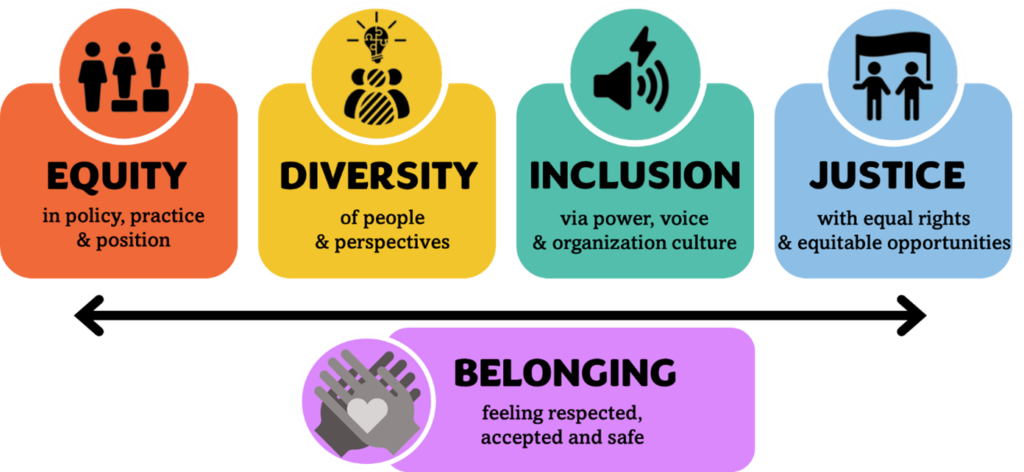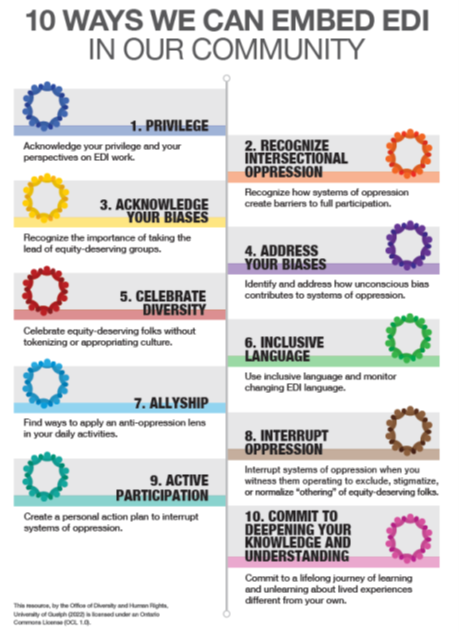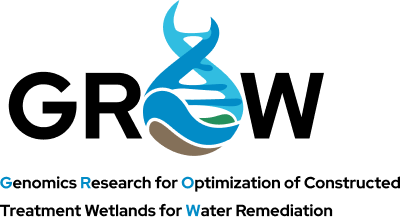
The GROW’s team recognizes that EDIJB enhances creativity, encourages the search for perspectives, and strengthens research impact (please check the Additional resources section for articles on the topic). We understand the need to go beyond acknowledging differences and are committed to applying EDIJB principles within our team, on how we conduct our research, and how we address knowledge mobilization.
Below you will find some resources on the topic. If you have suggestions on how we can improve EDIJB in our project, please reach out (grow.ge3ls@usask.ca). In case you need immediate support, please contact our EDIJB coordinator (lori.bradford@usask.ca).
DEFINITIONS ↓
Please find below definitions for some key terms, as found in the Equity, Diversity, and Inclusion Policy, by the University of Saskatchewan (Equity, Diversity, and Inclusion Policy – Policies | University of Saskatchewan (usask.ca).
Equity: taking the range of human attributes and qualities into account and providing each individual with what they need to be successful.
Equality: providing each individual with the same or similar opportunities and ensuring fairness in processes and outcomes so that each individual has an equal opportunity to make the most of their abilities.
Diversity: the range of human differences, including diverse talents, perspectives, backgrounds, worldviews, ways of knowing, skills, and abilities.
Manācihitowin: a Cree/Michif phrase that translates to ‘let us respect each other’.
Inclusion: ongoing practice of embracing equity, diversity, and manācihitowin and taking action to create a supportive and welcoming environment.
Belonging: when each individual is supported, respected, and valued for their identity and unique traits that make them different from each other. Belonging is feeling part of a collective that is co-created by diverse individuals in the university community.
Human Dignity: right to be safe, valued, respected, and treated ethically.
A more extensive guide of key terms can be found in Guide on Equity, Diversity and Inclusion Terminology – Glossaries and vocabularies – TERMIUM Plus® – Resources of the Language Portal of Canada – Canada.ca (noslangues-ourlanguages.gc.ca)
ACRONYM ↓
Of course, the work being done is more important than how you choose to name it, but it is hard to disassociate one from another. With several options for acronyms representing those values, we decided it was important to disclose our option for EDIJB, as we strive for a sense of belonging for all members and participants. For us at GROW, it is very important to make sure everyone is welcomed, every perception is heard, all contributions are fairly acknowledged, and opportunities for growth are encouraged and facilitated.
DEI vs EDI vs JEDI: different names, similar goals? (linkedin.com)
BEING MINDFUL ON A DAILY BASIS ↓
In preparation for having EDIJB as part of our routine, it is important to recognize our own bias and keep striving for our best. Hence, find below a few links where you will be able to assess your bias and do some training on different topics.

Harvard’s project Implicit – Project Implicit (harvard.edu)
Government of Canada presentation on bias, with a special focus on the peer-review process – https://cihr-irsc.gc.ca/lms/e/bias/
Short video on media bias – White Riots vs Black Protests – Brave New Films
Presentation about microaggressions – Slide 1 (shrmgt.org)
ADDITIONAL RESOURCES ↓
Articles:
Bringing an Equity-Centered Framework to Research: Transforming the Researcher, Research Content, and Practice of Research https://www.ncbi.nlm.nih.gov/books/NBK592588/pdf/Bookshelf_NBK592588.pdf
How Diversity Makes Us Smarter https://www.scientificamerican.com/article/how-diversity-makes-us-smarter/
Achieving diversity in Research https://www.nature.com/collections/qsgnpdtgbr
Books suggestions:
https://stlawrencecollege.libguides.com/edib
Educational resources:
https://www.wlu.ca/academics/faculties/faculty-of-education/assets/resources/edi-resources-for-educators.html

